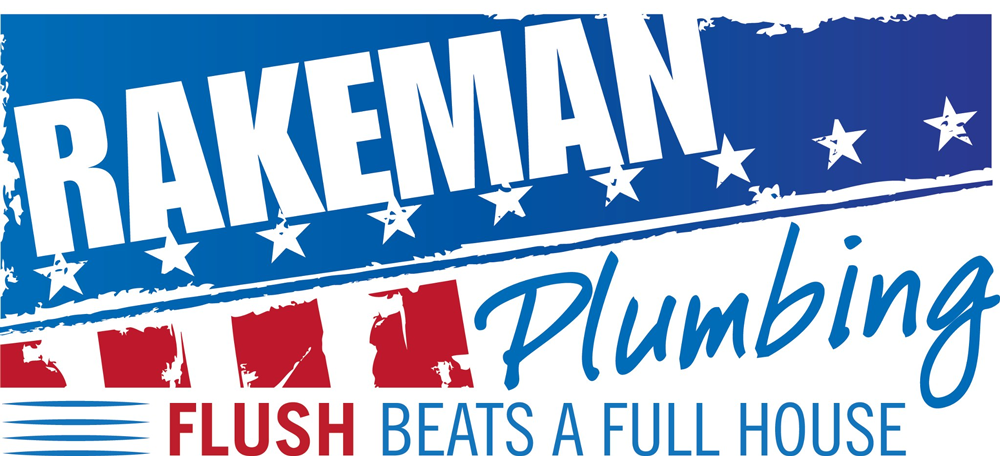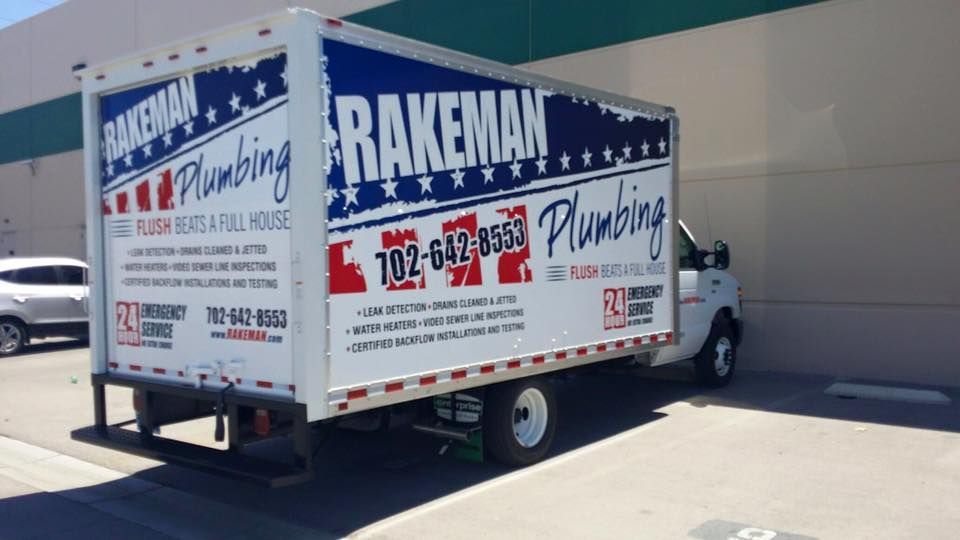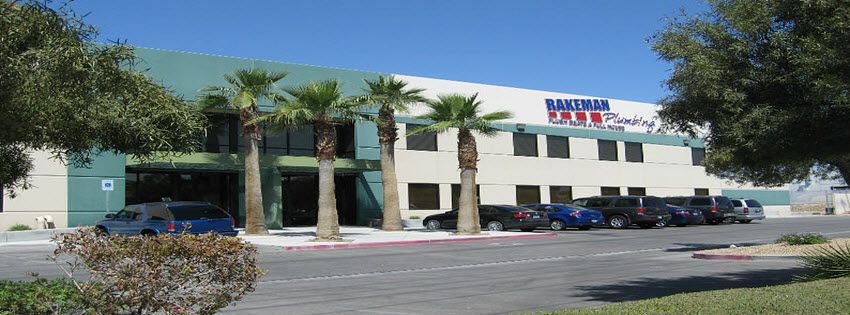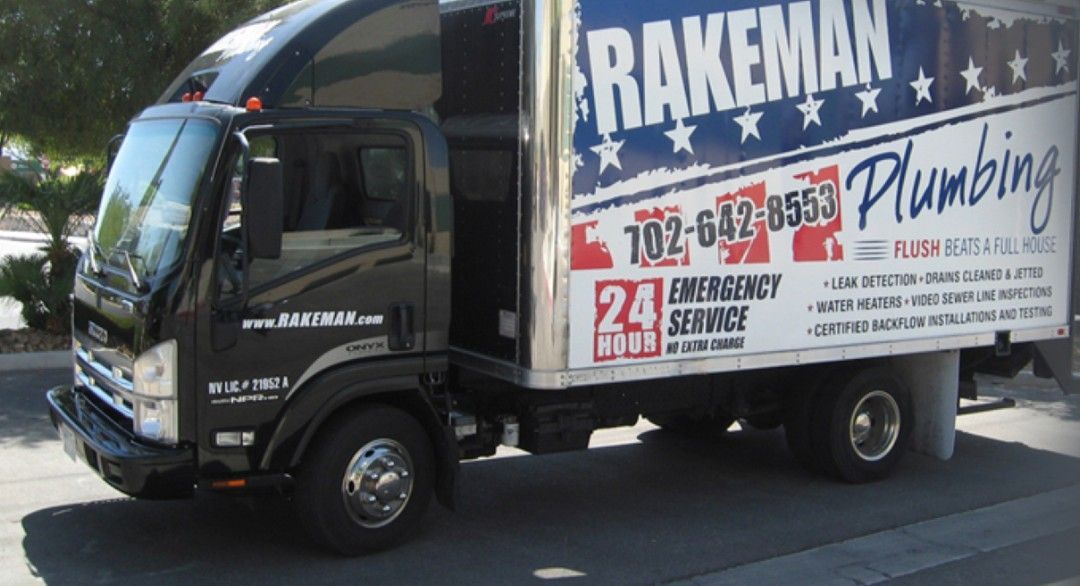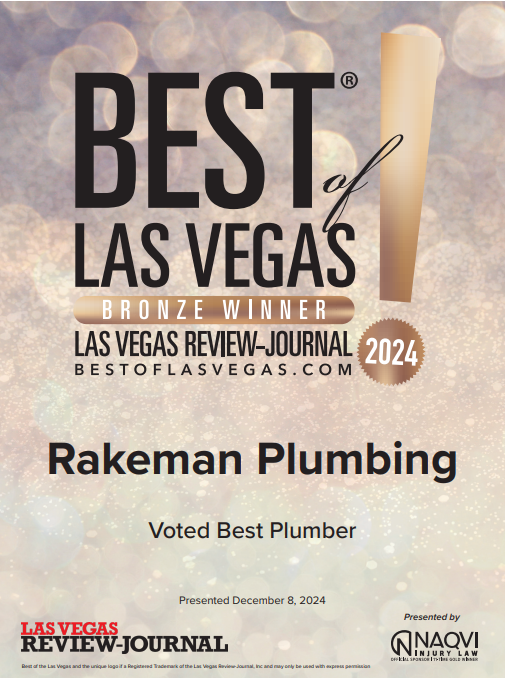A FLUSH BEATS A FULL HOUSE
FAMILY-OWNED, FULL-SERVICE PLUMBING FOR LAS VEGAS SINCE 1957
Plumbing Contractor Serving Las Vegas, NV
Residents of Las Vegas, NV, seeking a trusted plumbing contractor find their ideal partner in Rakeman Plumbing. Our commitment to excellence and customer satisfaction sets us apart, ensuring that each service is performed with precision and care. At Rakeman Plumbing, every plumber is trained to tackle a wide range of plumbing needs, from simple repairs to complex installations, with expertise and dedication.
Our Plumbing Services Include:
Backflow
Testing & Installation
Rakeman Plumbing has licensed service technicians for your backflow testing, repairs, and installations for residents all around Las Vegas, Henderson, Enterprise, North Las Vegas, and more.
Slow drains may just be a minor annoyance, but if you don’t address the problem soon, it will only get worse.
Water Heaters
Rakeman Plumbing can service, repair, or replace your water heater in Las Vegas. We also offer warranty service on most water heater manufacturers.
Why Choose Us?
Choosing Rakeman Plumbing means choosing reliability. With years of industry experience, our team understands the unique challenges faced by homeowners in Las Vegas. This local knowledge allows us to offer tailored solutions that effectively resolve issues while preventing future problems. Our transparent approach to service ensures that clients are always informed, creating a seamless and stress-free experience.
Beyond technical expertise, Rakeman Plumbing prides itself on punctuality and respect for your time. Our team arrives promptly, equipped with the necessary tools and parts, minimizing disruptions to your day. Our friendly and professional demeanor fosters trust and builds lasting relationships with our clients, making us the preferred plumbing contractor in the area.
While our focus remains on delivering superior plumbing services, Rakeman Plumbing also provides HVAC solutions to meet your comprehensive home service needs. This dual offering reflects our dedication to ensuring the comfort and convenience of your home environment throughout the year.
Whether you're facing a plumbing emergency or planning a renovation, Rakeman Plumbing is ready to assist with all your needs. Reach out today and discover how our expertise can bring peace of mind to your home. Contact Rakeman Plumbing now and experience the difference in quality service.
Plumbing Contractor in Las Vegas, NV
At Rakeman Plumbing, we are your go-to plumbing contractor in Las Vegas, NV, committed to providing fast, reliable service for every project. Whether you need routine maintenance or emergency repairs, our skilled team is ready to help. Call us today at 702-642-8553 to schedule service or get immediate assistance.
Reliable Drain Cleaning and Maintenance
Clogged drains can cause serious issues if left untreated. Our drain cleaning services in Las Vegas, NV, quickly remove blockages and restore proper flow. Using advanced tools, we clear kitchen sinks, bathroom drains, and main sewer lines efficiently. Preventative maintenance programs help avoid recurring clogs, saving homeowners from costly repairs.
We pride ourselves on being a plumbing contractor in Las Vegas, NV, that not only fixes problems but also prevents them. Our team is trained to identify early warning signs of potential plumbing issues and address them proactively.
FAQ
How Do We Handle Plumbing Emergencies In Las Vegas?
When a plumbing emergency happens, we respond quickly to control the situation and prevent further damage. We assess the issue, locate the source, and provide an immediate solution to restore safety and function. Our emergency plumbing services in Las Vegas, NV, are designed to keep disruptions minimal and protect your home or business. We communicate clearly throughout the process so you know what to expect and what steps we recommend next.
What Are Our Drain Cleaning Services in Las Vegas, NV?
Our drain cleaning services focus on removing buildup, clogs, and debris from sinks, tubs, toilets, and sewer lines. We use safe but effective tools to clear blockages without harming your plumbing system. We also look for warning signs that can lead to recurring issues, helping you avoid future backups. Our goal is to keep your drains flowing smoothly while extending the lifespan of your plumbing system.
How Can We Help Prevent Plumbing Problems At Home Or Work?
We help prevent plumbing problems by offering routine inspections, maintenance, and education on best practices. During a service visit, we check pipes, fixtures, valves, drains, and water pressure to spot any early warning signs. We also provide guidance on what to avoid putting down drains and how to identify small leaks before they become major issues. Preventative care saves money, reduces stress, and keeps your plumbing running efficiently.
What Makes Us a Reliable Plumbing Contractor in Las Vegas, NV?
We are committed to providing dependable service, clear communication, and long-lasting solutions. Our licensed team arrives prepared, works efficiently, and treats every property with respect. We offer honest pricing and explain every step of the process so you feel confident in the work being done. Our combination of experience, professionalism, and customer-focused service makes us a trusted plumbing contractor in Las Vegas, NV.
Contact Us Today for Expert Plumbing Services
Ready to resolve your plumbing issues? Call Rakeman Plumbing now at 702-642-8553 or visit our contact page to schedule a service. Trust us as your plumbing contractor in Las Vegas, NV, for fast, reliable, and affordable solutions.
